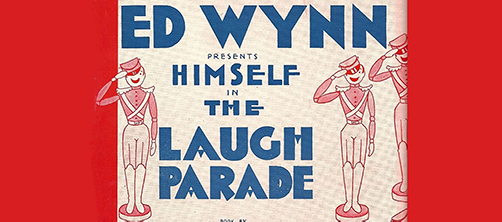Pas de biographie disponible.
Compositeur Musique additionelle Librettiste Parolier Metteur en scène Chorégraphe Producteur création Producteur version
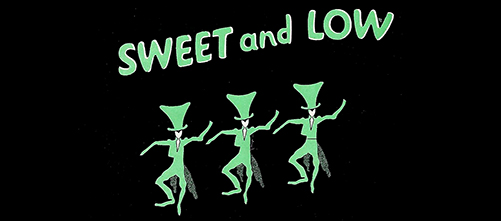
Musical
Musique: *** Divers • Harry Warren • Vivian Ellis • Paroles: *** Divers • Livret: David Freedman • Production originale: Billy Rose • 1 version mentionnée
Dispo: Génèse
"Sweet and Low" est une revue musicale produite par Billy Rose et mettant en vedette James Barton, Fanny Brice, George Jessel et Arthur Treacher. Il présente des sketches de David Freedman et des chansons de divers compositeurs et paroliers.
Genèse: The 1930 Broadway production was directed by Alexander Leftwich and choreographed by Danny Dare, with additional dances staged by Busby Berkeley. Scenic design was by Jo Mielziner. It ran for a week at the Majestic Theatre in Brooklyn before opening on November 17, 1930 at Chanin's 46th Street Theatre, where it ran for 184 performances. Although it rarely sold out, Rose transferred it to the 44th Street Theatre, where it was more successful at the box office.
Résumé:
Création: 17/11/1930 - Richard Rodgers Theatre (Broadway) - 184 représ.
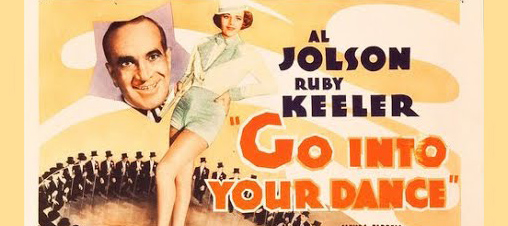
Film
Musique: Al Dubin • Harry Warren • Paroles: Livret: Earl Baldwin • Production originale: 1 version mentionnée
Dispo: Résumé Génèse Liste chansons
Genèse: C’est le seul film qui met en vedette Al Jolson et Ruby Keeler, qui étaient mariés à l’époque. Il a été tourné aux studios Burbank à Hollywood avec des décors conçus par le directeur artistique John Hughes. "Go into Your Dance est sorti" en Grande-Bretagne sous le nom de "Casino de Paris". Des années après la sortie initiale du film, la carrière de Jolson avait été revivifiée après la sortie du film de Columbia Pictures en 1946, "The Jolson Story". Warner Bros a profité du succès de ce film pour resortir "Go in Your Dance" l’année suivante. Une nouvelle ouverture a été été ajoutée, ce qui a donné à Jolson la possibilité d'apparaître cette fois seul en haut de l'affiche. Un prologue écrit pour assurer au public que le film a eu lieu en 1935 a aussi été ajouté. Aucun autre changement n’a été fait.
Résumé: Al Howard a peut-être été une star à Broadway, mais plus aucun producteur ne veut encore le recevoir. Il semble qu’il fuit au Mexique chaque fois qu’il veut provoquer la fermeture d'un show, ce qui fait perdre de l’argent aux producteurs. Quand sa sœur Molly ne trouve plus de travail à Al, elle le pousse à former un duo avec la talentueuse Dorothy. Il récoltent un grand succès dans un night-club de Chicago. Cela pousse Al à vouloir ouvrir son propre club à Broadway. Il emprunte de l’argent à un gangster pour l'ouvrir. Et le gangster veut que Al fasse son duo plutôt avec sa femme, Luana…
Création: 20/4/1935 - *** Film (***) - représ.
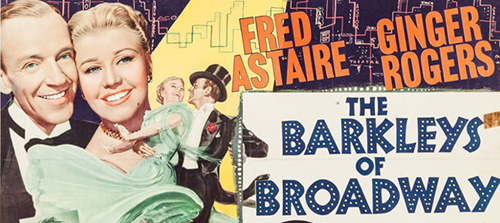
Film
Musique: George Gershwin • Harry Warren • Paroles: Ira Gershwin • Livret: Adolph Green • Betty Comden • Production originale: 1 version mentionnée
Dispo: Résumé Commentaire
Ce film musical en Technicolor de 1949, produit par l'unité Arthur Freed de la Metro-Goldwyn-Mayer, a réuni Fred Astaire et Ginger Rogers après dix ans d'interruption.
Genèse:
Résumé: À la sortie d’une grande première, Josh (Fred Astaire) et Dinah (Ginger Rogers) Barkley prennent part à une grande réception où ils rencontrent Jacques Barredout (Jacques François), dramaturge français émigré aux États-Unis. Jacques Barredout propose à Dinah dont il est amoureux, de devenir "sa" tragédienne dans sa dernière pièce. Il ignore délibérément Josh qui n'est pour lui qu'un amuseur. Après son succès, Dinah revient vers Josh, son amour et ils repartent dans leur domaine, la comédie musicale.
Création: 4/5/1949 - *** Film (***) - représ.
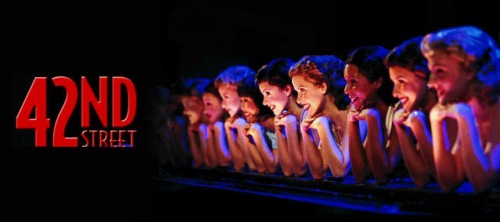
Musical
Musique: Harry Warren • Paroles: Al Dubin • Livret: Mark Bramble • Michael Stewart • Production originale: 14 versions mentionnées
Dispo: Résumé Synopsis Commentaire Génèse Isnpiration Liste chansons
42nd Street, une comédie musicale écrite en 1980, est une célébration des claquettes des comédies musicales des années 1920 et 1930
Genèse: Producer David Merrick "took a huge gamble with his $3 million production based on the 1933 Warner Brothers film musical", as "only one other show had made the transfer from original movie musical to the stage -- 'Gigi,' a flop in 1974."[1][2] He felt audiences once again were ready to embrace the nostalgia craze started by the successful revivals of No, No, Nanette, Irene, and his own Very Good Eddie several years earlier, and augmented the familiar songs from the film's soundtrack with a liberal dose of popular tunes from the Dubin-Warren catalogue. According to theatre historian John Kenrick, "When the curtain slowly rose to reveal forty pairs of tap-dancing feet, the star-studded opening night audience at the Winter Garden cheered…Champion (who had no tap training) followed this number with a series of tap-infused extravaganzas larger and more polished than anything Broadway really had in the 1930s." Original Broadway) In June 1980, the musical premiered in out-of-town tryouts at the Kennedy Center for the Performing Arts in Washington, D.C. After six previews, the Broadway production opened on August 25, 1980 at the Winter Garden Theatre, eventually moving to the Majestic and then the St. James, closing after 3,486 performances. (Frank Rich called this a sign of the "shift of power" on Broadway, as the show had to leave the Winter Garden to make way for Cats and the Majestic to accommodate The Phantom of the Opera.) The original cast included Jerry Orbach as Julian Marsh, Tammy Grimes as Dorothy Brock, Wanda Richert as Peggy Sawyer, and Lee Roy Reams as Billy Lawlor. Replacements later in the run included Barry Nelson and Don Chastain as Julian, Elizabeth Allen, Dolores Gray, and Millicent Martin as Dorothy, and Lisa Brown and Karen Ziemba as Peggy. The show's designers, Robin Wagner (sets), Theoni V. Aldredge (costumes), and Tharon Musser (lights) were the same team who had designed the original Broadway production of A Chorus Line. The musical is the 12th longest runnning show in Broadway history, as of December 2010. This Tony Nominated wardrobe, designed by Theoni V. Aldredge, is on display at the Costume World Broadway Collection in Pompano Beach, Florida. However, the opening night triumph was overshadowed by tragedy. Following a 5 minute standing ovation, Merrick went onstage and stated, "It is tragic…Gower Champion has died." He went on to explain that Champion had died of cancer just hours before the performance, "when he said that Mr. Champion had died, there were gasps and screams." The producer had advised only Bramble of Champion's death and managed to keep the news a secret from the cast (including Richert, the director's girlfriend), crew, and the public prior to his announcement. 42nd Street proved to be not only Champion's last show but Merrick's final success. Merrick lived until 2000, but, as described by Anthony Bianco, 42nd Street "was his last big hit, his swan song." West End - 1984 The West End production opened at the Theatre Royal Drury Lane on August 8, 1984. The career of teenaged Catherine Zeta-Jones, a chorus member in the 1984 West End production, was launched when a vacation and an illness felled both the actress portraying Peggy Sawyer and her understudy on a night one of the producers happened to be in the audience. Zeta-Jones filled in and was impressive enough to be cast permanently in the role shortly afterward. Broadway revival - 2001 Bramble revised the book for and directed the Broadway revival, with choreography by Randy Skinner (dance assistant for the original production). It opened, after 31 previews, on May 2, 2001 at the Foxwoods Theatre (formerly the Ford Center for the Performing Arts), where it ran for 1,524 performances. The cast included Michael Cumpsty as Julian, Christine Ebersole as Dorothy, Kate Levering as Peggy, and David Elder as Billy. Meredith Patterson, who made her Broadway musical debut in the chorus and was the understudy for the role of Peggy Sawyer, took over the role in August 2001. Todd Lattimore, who was a swing and understudy took over the role of Billy. Other notable replacements included Patrick Cassidy and Tom Wopat as Julian and Shirley Jones and Beth Leavel as Dorothy. UK Tour - 2007 The Broadway revival production, by UK Productions, toured the UK in 2007. The cast included Paul Nicholas as Julian for the first part of the tour, later replaced by Dave Willetts, Julia J Nagle as Dorothy, Jessica Punch as Peggy and Ashley Nottingham as Billy.
Résumé: "42nd Street" est l'histoire d'une jeune actrice humble et naïve prénommée Peggy Sawyer qui est venue pour auditionner pour une nouvelle comédie musicale de Broadway. Malheureusement, à cause de sa nervosité, Peggy arrive en retard à l'audition et manque sa chance de joindre le chœur. Heureusement, Peggy a été remarquée par le célèbre metteur en scène, Marais Julien, et il donne à Peggy sa chance. Cependant, l'actrice principale vieillissante, Dorothy Brock, déteste rapidement Peggy. Le soir de l'opening night, Mlle. Brock tombe et se casse la cheville. La panique prend toute la compagnie, car le spectacle est vraisemblablement condamné à la fermeture, jusqu'à ce que l'on suggère que Peggy reprenne le rôle. En seulement trente-six heures, Peggy apprend vingt-cinq pages, six chansons et dix numéros de danse et devient une star.
Création: /7/1980 - Kennedy Center for the Performing Arts (Washington) - 3486 représ.
